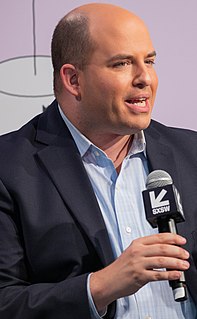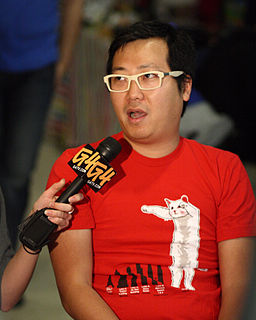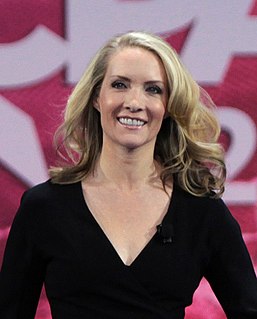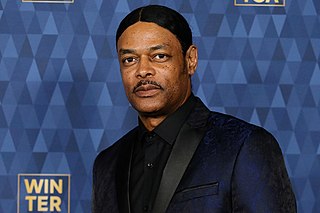A Quote by Donald Trump
I have been very concerned about media bias and the total dishonesty of the press. I think new media is a great way to get out the truth.
Related Quotes
I have learned one thing, because I get treated very unfairly, that's what I call it, the fake media. And the fake media is not all of the media. You know some tried to say that the fake media was all the media, no. Sometimes they're fake, but the fake media is only some of the media. It bears no relationship to the truth.
Every story has a point of view and whether it's by what one chooses to include or exclude from a story or whether it's a very specific agenda that is pushed, there is no such thing as objective media. Once you realize that it's more than just a marketplace of ideas, it's a battleground of ideas that are suppressed and the ideas that are pushed forward in the mainstream media are the ones that independent media has a chance to address. I think that the democratization of media in that way can be very helpful in allowing the truth to come out in a way that it might not on CNN or FOX.
I think, ironically, the media's been good for America, but Trump's been good for the media. He's revitalized The New York Times and CNN - it's never had so much integrity and so much power ever, and that's because being attacked by constant authoritarians and fascists with an agenda has actually got them to sharpen up and to get back to base principles about what the media should actually be. It's also that the circulation boost has removed this horrible, incipient commercial pressure that compromises media.
The media are very dishonest. In fact, in covering my comments, the dishonest media did not explain that I called the fake news the enemy of the people - the fake news. They dropped off the word "fake." And all of the sudden, the story became, the media is the enemy. They take the word "fake" out, and now I'm saying, oh, no, this is no good. But that's the way they are. So I'm not against the media. I'm not against the press. I don't mind bad stories if I deserve them. And I tell you, I love good stories, but we won't - I don't get too many of them.
I don't think the rhetoric toward President Trump from media sources or media commentators is any worse than what Franklin Roosevelt got from a conservative press in another era. And Roosevelt was, you know, not as blunt as Trump about the press, but, you know, there was an ideological press back then, when we had multiple newspapers in town.
Thinking about free speech brought me to media regulation, as Americans access so much of their political and cultural speech through mass media. That led me to work on the FCC's media ownership rules beginning in 2005 to fight media consolidation, working with those at Georgetown's IPR, Media Access Project, Free Press, and others.
One of the problems with any kind of talking about the media landscape is that we've just been through an unusually stable period in which, for fifty years, English language media was centered in three cities - London, New York, and Los Angeles - around a very stable group of people working in a relatively stable set of media.
I'm naturally shy, so the social media thing is new to me. I haven't really figured out how my voice sounds on social media, you know? I don't want to tweet everyday just for the sake of tweeting. I want to make sure whatever I do there is honest. Social media can very quickly get fake, and I don't want to be that guy.
The arrival of television established a mass-media order that dominated the last 50 years. This is a personal media revolution. The distinction between the old order and the new order is very important. Television delivered the world to our living room. In the old media, all we could do was press our noses against the glass and watch.
































